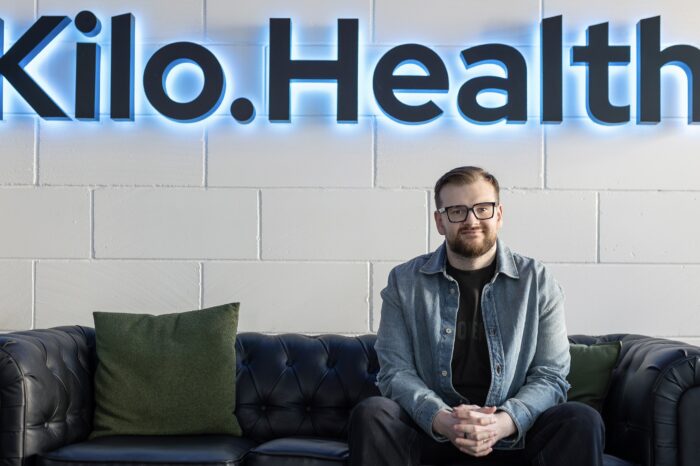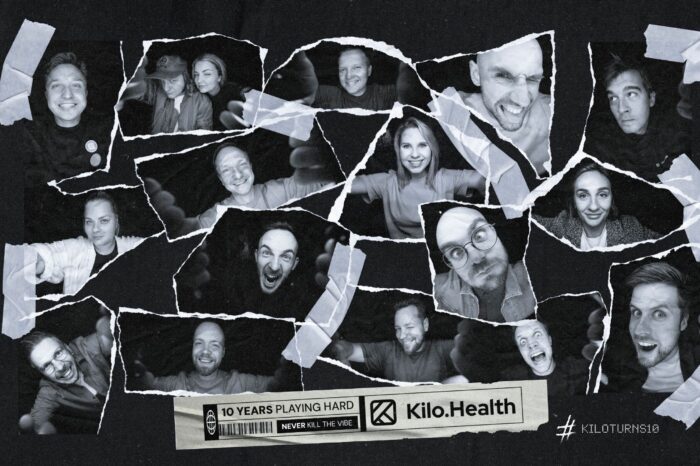

What future do digital therapeutics have, and what potential can they offer in the near future?
The digitalization of wellness and health products has exploded in recent years. It provided new means that might allow tackling various health-related issues. Also, they help to find approachable alternatives to offer people a better chance to attain well-being.
But what future do the digital health platforms have, and what potential can they offer in the near future?
For starters, let’s begin by defining what digital health is.
Digital health is like an umbrella term that consists of several types of software platforms. It comprises devices, wearables and sensors, health data technology, personalized medicine, and digital therapeutics (DTx).
The most promising field of digital health is its subsection DTx. It contains multiple technologies and services that can aid healthcare and wellness industries.
DTx has a unique capability to commit clinically proven therapeutic interventions to prevent, manage, or treat medical disorders or diseases. Digital therapeutics provide an additional help alongside traditional treatment of health conditions. Also, it can be a replacement for conventional pharmaceuticals in general.

In recent years, the DTx industry is growing fast and has the potential to replace some traditional therapeutics. For example, DTx-based mobile apps and devices can help patients manage their medical conditions. These apps remind them about dosage time, making medication adherence more comfortable. It can also guide users in reaching a healthy lifestyle, managing diseases like diabetes, or aiding those with chronic disorders like PTSD.
DTx progress and the ability to cover more health-related concerns have a lot to do with recent technological advancements. Nowadays, there’s a chance of producing these devices and software platforms at optimal speed and quantity, making DTx more cost-effective than ever.

Despite the growing DTx industry, it has versatile ability in providing solutions to health problems and data confirming their clinical value. It faces some struggles in taking part in the healthcare mainstream. This industrial obstacle stems from two reasons.
First of all, it’s pretty challenging for consumers and medical professionals to distinguish apps in terms of which one has or doesn’t have a proven therapeutic value. That’s why in some countries like the US and Germany, institutions became responsibile for overseeing the accreditation. They check DTx platforms for their clinical validity and mark these products so that each medical specialist could recognize them.
Developers who want to sell their software and receive accreditation have to carry out trials, collect data, and follow other procedures.
There is another obstacle to solved on the road to the wide adoption of digital therapeutics. It is the misalignment of incentives among providers, payers, and pharmaceutical companies.
DTx asks healthcare providers to change their workflows. That would mean that specialists would have to learn how to adopt digital tools within their medical practice. There is a high chance that the payer will expect some reimbursement before getting a DTx as well.
Yet, the healthcare bureaucratic processes would need administrative adjustment in order to find enough cash to ensure compensation.
In that regard, pharmaceutical and insurance companies will demand from DTx developers to prove their platform’s effectiveness. Companies will have to back their claims up with comprehensive data. This process might take some precious time. However, collecting needed information about products’ benefits won’t 100% guarantee that healthcare-related institutions approved the app.
No matter these struggles, there’s a positive aspect behind these industrial obstacles as well. The shared interest in DTx has brought both pharmaceutical companies and software developers in one place. This fascination has created new opportunities to share know-how from both sides, potentially accelerating the development and adoption of DTx.
That being said, digital therapeutics (DTx) will soon become a new category of medicine.
It is capable of addressing all kinds of health conditions and helping people in need. Much work remains for developers and specialists working in the healthcare system in finding the best way to integrate DTx within the traditional medical ecosystem. Yet, by keeping up with the current pace and determination, DTx can become an indispensable part of medical practice.
If you want to find out more about digital therapeutics, check out Kasparas Aleknavičius’ presentation at the “Health for all 2021” conference here.


Kilo Health concluded 2024 on a strong note, achieving stable revenues and growth, alongside a team of 450 employees. In 2024, the company’s consolidated revenue remained steady at €234 million, the same as in 2023. Despite external market challenges, Kilo…

Ask, research, support. These three words sum up my role — or maybe just the nerd face emoji. Currently, I am working as a Scientific Research Lead at Kilo Health. But before that, I’ve always been on a similar path,…

As we’re entering an exciting new chapter of business growth and leadership, it’s the perfect time to catch up on the latest changes in our team and where we’re headed next. Dive in and get to know our new CEO…

I’m Matas, and when asked, I refer to myself as an intern — always learning. However, research, strategy, business development, and idea generation are the cornerstones of my work. I want to pull back the curtain and give you an…

I’m Deimante, currently Head of Marketing at Kilo Health, and a big lover of this company. My journey to being hired at Kilo has been quite the ride. How it all started? I underwent interviews with 11 different people and…

Ever dreamt of taking the lead, even if the path isn’t crystal clear? Or to have someone believe in you and offer you a chance to figure out whether you would thrive in a startup environment? Speaking of which, Kilo…

A whole decade has raced by in the blink of an eye for us at Kilo Health, and what better way to celebrate than to reflect on the milestones and lessons over the years? Do you know where we started?…

We, the co-founders, are just ordinary individuals with grand ambitions. There are times when we work twice as long and intensely as others, yet we’re equipped with the same amount of daytime, energy, and capacity. However, as leaders in the…

There’s no enchanting tale behind how I became a part of Kilo Health. In truth, some of us regular folks simply have regular journeys, and that’s perfectly fine. What counts is that today, I hold a successful product in my…

Reflecting on your achievements from the previous year is advantageous. That’s exactly what we did, proudly demonstrating our boundless aspirations through an impressive 84% growth and 213 million euros. So let’s put our hands in the air and celebrate together,…

I joined Kilo Health back in 2019, and I can prove that when people’s values and mindsets align, great things can be accomplished, even if you don’t have a plan. BoomeranGO!, the first and only product for children provided by…

Lighting, sound, set, and actors are essential components of a film studio, but they are not the sole factors that define its success. Consistent creativity, appreciation of talent, and adaptability to market trends are a few of the things that…

Imagine a world where technology creates a tailor-made meal plan and recommendations after analyzing different data about you. This is not science fiction but a reality that is fast approaching. Traditional plans drawn up by nutritionists are already being replaced…

Hey, I’m glad you’re here — I’m Viktorija Jokantaite-Kutke, the CEO of the Weight Management Accelerator at Kilo Health. One thing about me is that I don’t do boredom. I am always moving, always building. Try to keep up! When…